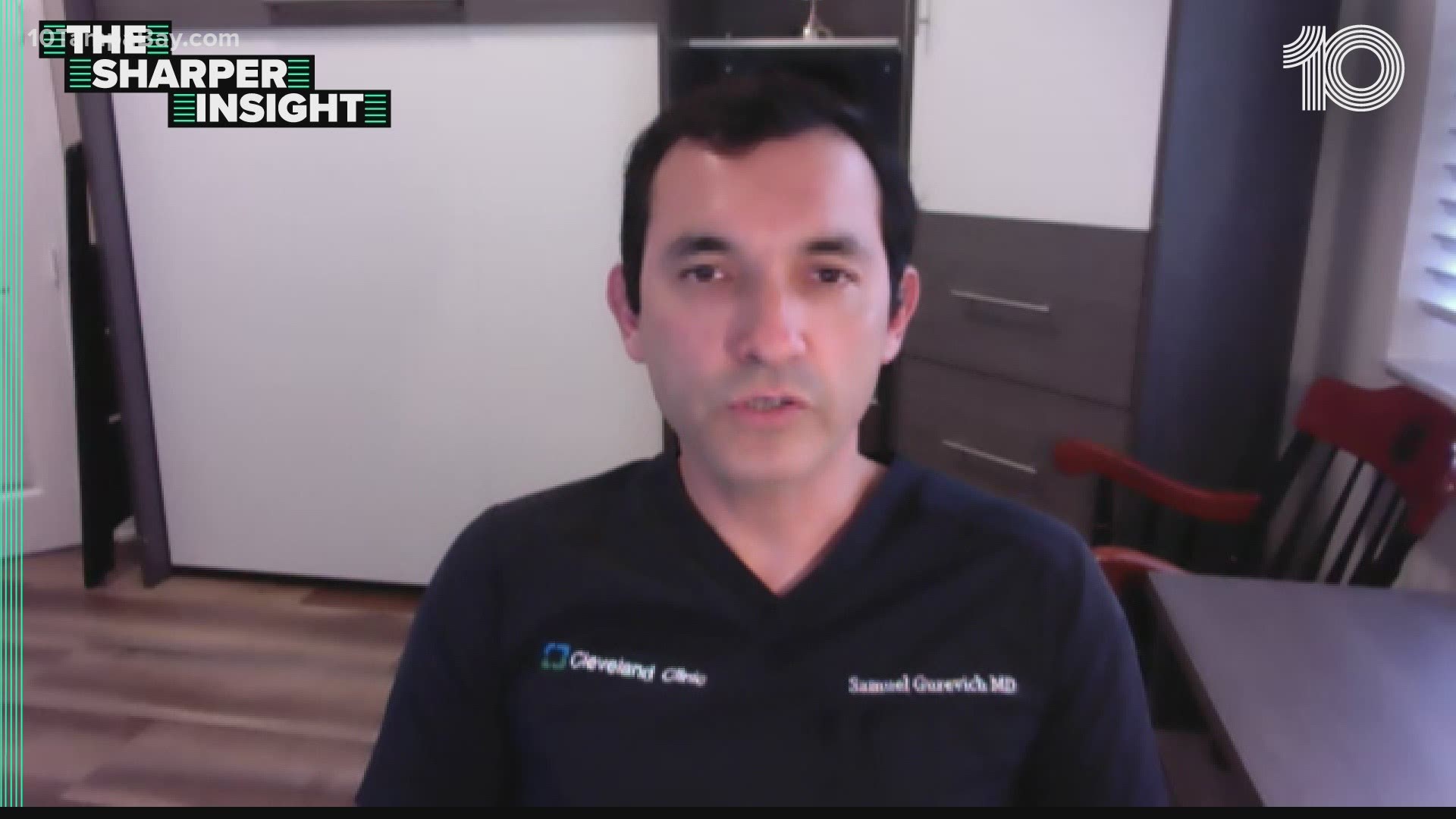ST. PETERSBURG, Fla. — We have been seeing the effects of red tide largely in marine life with 676 tons of dead sea life being collected in Pinellas County alone, but what about when it comes to the impact on humans?
Scientists at the Centers for Disease Control and Prevention say they know little about about how red tide affects people. They're curious about how swimming in red tide waters or breathing nearby air might impact the body.
But based on unscientific evidence, the CDC found people who do happen to inhale or swim in brevetoxins that are dispersed in the air may experience the following:
- Irritation of the eyes, nose, and throat
- Coughing
- Wheezing
- Shortness of breath
Symptoms are more critical for people who have respiratory illnesses like asthma.
Tingling of the fingers and toes are some neurologic symptoms sometimes noted by people who eat shellfish contaminated by red tide.
The Florida Department of Health says symptoms in humans are usually temporary. Wearing a particle filter mask or trying over-the-counter antihistamines may decrease your symptoms.
But what could inhaling all those toxins do to your body over the long term?
For a sharper insight, we talked to Dr. Samuel Gurevich, a pulmonologist at the Cleveland Clinic Weston. He treats patients who have trouble breathing. He says those who have respiratory diseases like asthma, COPD, and emphysema could have a flare up, and even after the red tide is gone, they can have exacerbated symptoms.
“Long-term that can actually cause permanent lung damage if not well controlled, and we’re talking about over years and years. And certainly asthma in particular can be very quick on set. It can become very, very severe very quickly, and so we have to be extra careful in those individuals.” Dr. Gurevich said.
Inflammation will narrow the airways, and that’s what causes wheezing. Patients could end up in the emergency room. That’s something to pay attention to. He also says long-term asthma patients should have an emergency plan and know your triggers and try to avoid them.
“The sooner you treat the symptoms, the less the exacerbation will be,” Gurevich explained.
Treatments include using a symptom inhaler, steroids and nebulizer treatments. He says to prevent long-term effects, patients should use the least amount of medications as possible, but not taking action, can be dangerous for those with severe symptoms.
What other people are reading right now:
- Gov. DeSantis urges President Biden to help get internet access to Cuba
- 800 tons of dead sea life collected in St. Pete, mayor says
- Back in business: Stanley Cup officially on tour after having dent repaired
- Goliath grouper among Tampa Bay marine life casualties
- Money in the bank: Child tax credit dollars head to parents
- A Frank Conversation: New podcast explores race, religion, politics and more
►Breaking news and weather alerts: Get the free 10 Tampa Bay app
►Stay In the Know! Sign up now for the Brightside Blend Newsletter

